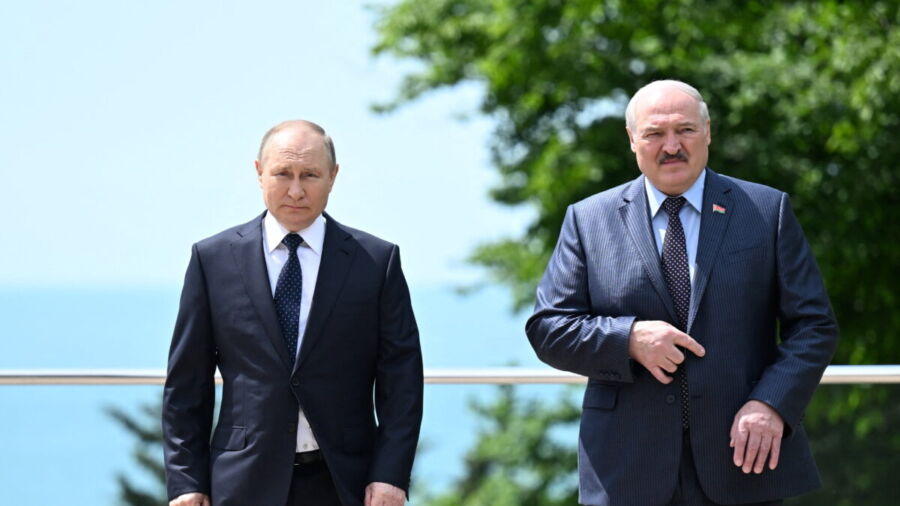Russia will station tactical nuclear weapons close to Belarus’ borders with NATO countries, a Russian envoy confirmed on Sunday.
The weapons will be “moved to the western border of our union state and will increase the possibilities to ensure security,” Russian ambassador to Belarus, Boris Gryzlov, told Belarusian state television.
“It will expand our defense capability, and it will be done regardless of the outcry raised in Europe and the United States,” he said, in reference to the West’s criticism of Putin’s decision.
Gryzlov’s comments come after Russian President Vladimir Putin announced his plans last month to station tactical nuclear weapons in Belarus. His decision came as a reaction to Britain’s decision to provide Ukraine with armor-piercing rounds containing depleted uranium.
“We are doing what they have been doing for decades, stationing them in certain allied countries, preparing the launch platforms and training their crews,” Putin said in an interview on Russian state television last month.
The Russian president noted that the United States has had nuclear weapons stationed in Belgium, Germany, Italy, the Netherlands, and Turkey for years.
Since Russia invaded Ukraine in February last year, NATO has increased the number of its troops stationed in Estonia, Latvia, Lithuania, and Poland almost tenfold. Belarus shares an almost 800-mile-long border with three of these four NATO member states: Poland, Latvia, and Lithuania.
Ambassador Gryzlov did not specify where the tactical nuclear weapons will be stationed, but reiterated that a storage facility would be completed by July 1, as earlier announced by Putin. It is unclear how many nuclear weapons will be installed.
Tactical nuclear weapons are designed to eliminate specific targets on the battlefield, as they have a shorter range and less “yield” than so-called strategic nuclear weapons—the much more powerful nuclear warheads fitted to long-range and intercontinental missiles that are capable of destroying entire cities.
According to Putin, Russia has helped the Belarusian army to modify its airplanes to allow them to carry nuclear warheads. He furthermore claimed that Russia has provided Belarus with short-range missiles capable of delivering nuclear payloads.
Russia and Belarus signed a supranational “union state” pact in 1999. The main focus of the agreement lies on economic unification and integration of both countries’ defense and intelligence apparatus. Talks to expand and deepen the integration of the two nations have continued ever since, a process that accelerated after the Belarusian government allowed Russia to send troops into Ukraine through its own territory last year.
The Associated Press contributed to this report.

